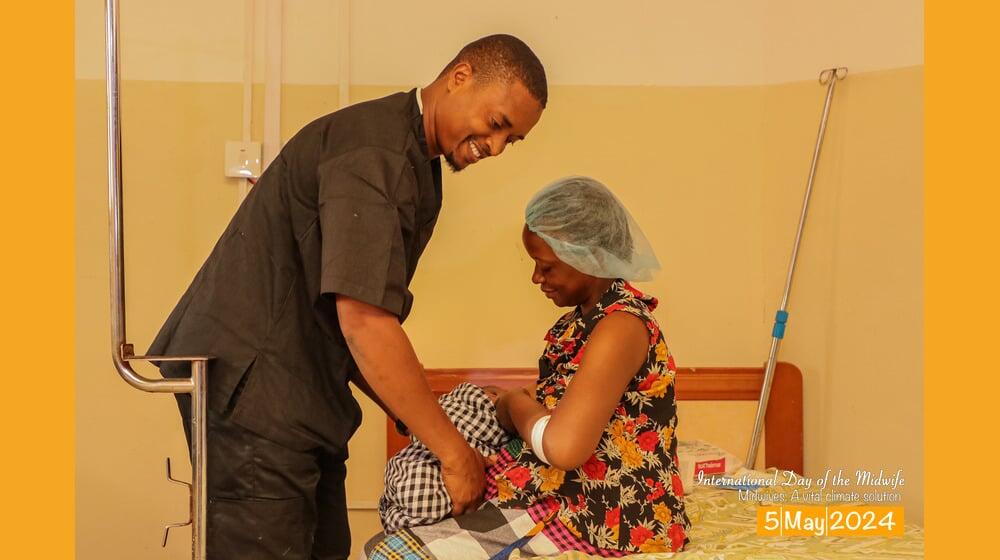Midwifery is said to be the single most important factor in stopping mothers and babies from dying during childbirth. Central to UNFPA mandate, midwives are the foundation for achieving the transformative goal of ending preventable maternal deaths, and their contributions are invaluable. In The Gambia, as in many other countries, midwives are at the forefront of providing essential healthcare services, making a significant impact on the well-being of mothers and their newborns.
May 5th annually is dedicated to celebrate the work of midwives everywhere. This year's theme Midwives: A Vital Climate Solution underscores the indispensable role of midwives in communities affected by climate-related crises, disasters, floods, displacement, and extreme weather. Childbirth occurs no matter the circumstances a woman faces, whether she is at home or forced to flee due to conflict or disaster.
Ahead of the international day of the midwife, we caught up with Ebrima Jallow, a nurse midwife. Ebrima chose the path less travelled becoming a midwife-a profession traditionally associated with women. He however remains undeterred as he finds joy bringing comfort and safety to mothers and babies alike.
“We find joy and confidence in each cry of a baby we help bring into this world. There's no greater feeling than knowing we've made a difference”.
Ebrima’s days are a filled with dedication and empathy. He said while he is on call, in a shift, they deliver up to 20 babies. His gentle demeanour and reassuring words transform the labour room into a place of trust, easing the fears of anxious mothers and families.
“Sometimes babies come flat-with no vital signs, you must resuscitate them. It's teamwork, you know everybody is in a hurry-give amber bagging, check the vitals, massage the back and then the baby all of a sudden screams alive. I have made it! So this is something that really excites us as midwives”
Despite commendable progress made in improving the proportion of deliveries attended by skilled health professionals (84% of deliveries now take place in health institutions), the midwifery profession is not without challenges. Currently, out of the approximately 421 midwives deployed throughout the country, 295 are concentrated in Banjul and the West Coast Region. This disparity in distribution creates a situation where other regions are left with critical gaps in midwifery services, which needs to be urgently addressed as the needs in those regions stays greater and it’s imperative to leave no one behind.
As part of its efforts to improve maternal health services, particularly in hard-to-reach areas, UNFPA Gambia has funded the training of 100 midwives. Additionally, UNFPA provided teaching aids to midwifery training institutions, ensuring students access to quality learning resources. Furthermore, furniture was provided to the Community Health Training Nursing School in Mansa Konko and the State Enrolled Training Nursing School in Bansang, enhancing the overall learning environment for nursing students.
Through strategic partnerships, UNFPA The Gambia is committed to continuously improving the status of the midwifery profession. By doing so, the aim is to promote the well-being of mothers and children and end preventable maternal deaths.
Media contact: Fatoumatta Cham, Program Analyst, Communications (fcham@unfpa.org)


